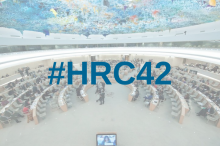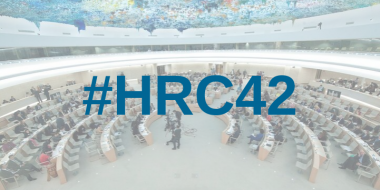HRC 42 | Interactive Dialogue with the Special Rapporteur on the Rights of Indigenous Peoples
42nd Session of the Human Rights Council: Interactive Dialogue with the Special Rapporteur on the Rights of Indigenous Peoples
STATEMENT OF THE INTERNATIONAL DEVELOPMENT LAW ORGANIZATION
Palais des Nations, Geneva, Switzerland
Delivered by Julian Fleet, Permanent Observer to the United Nations in Geneva










